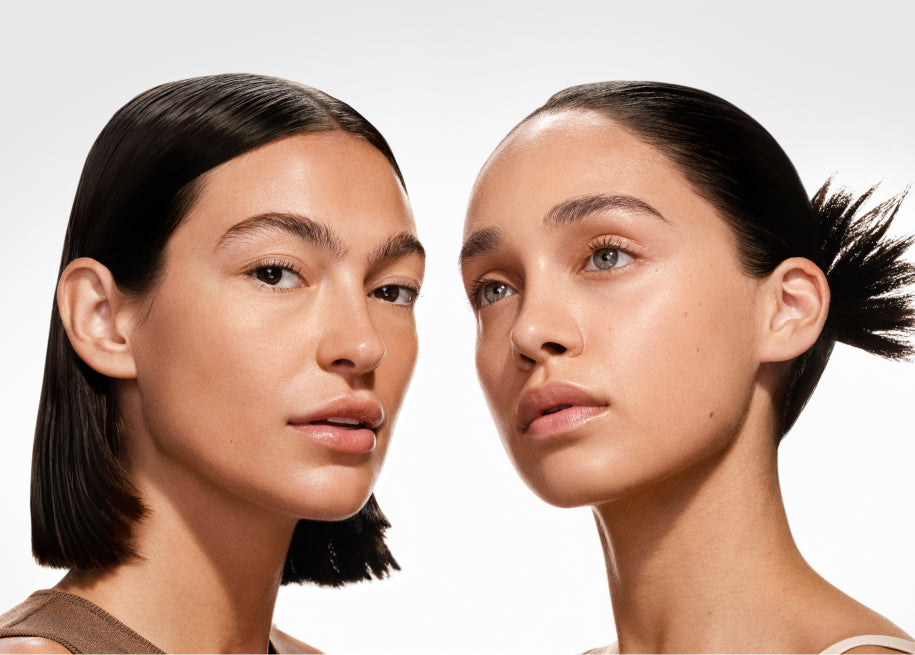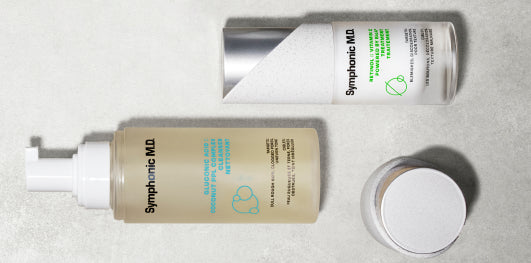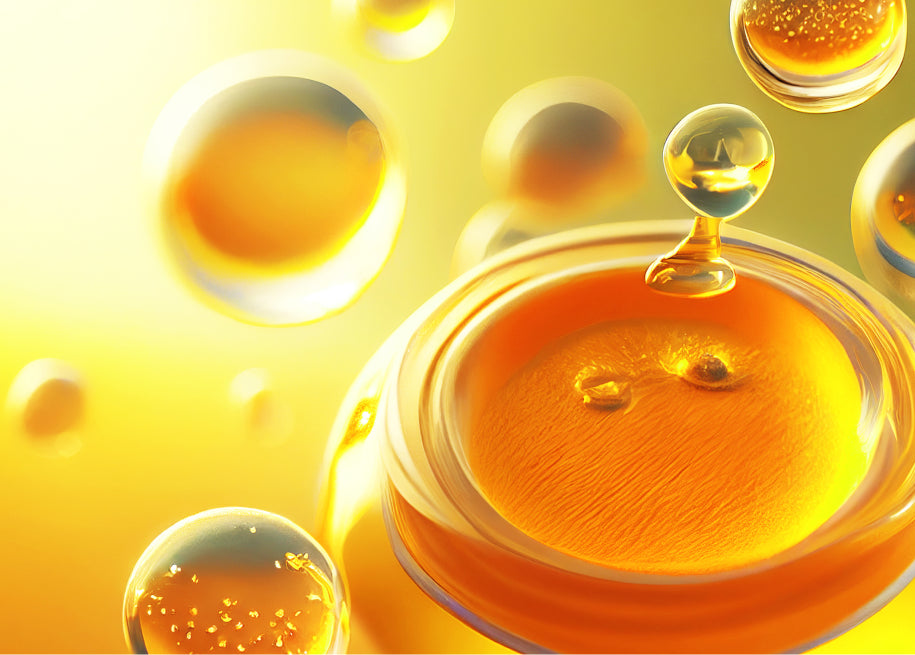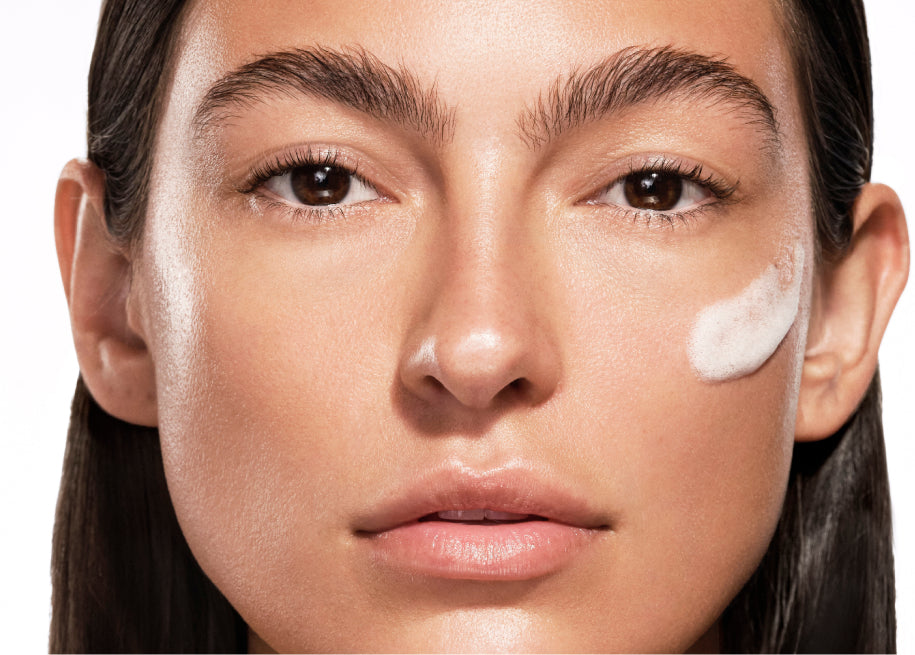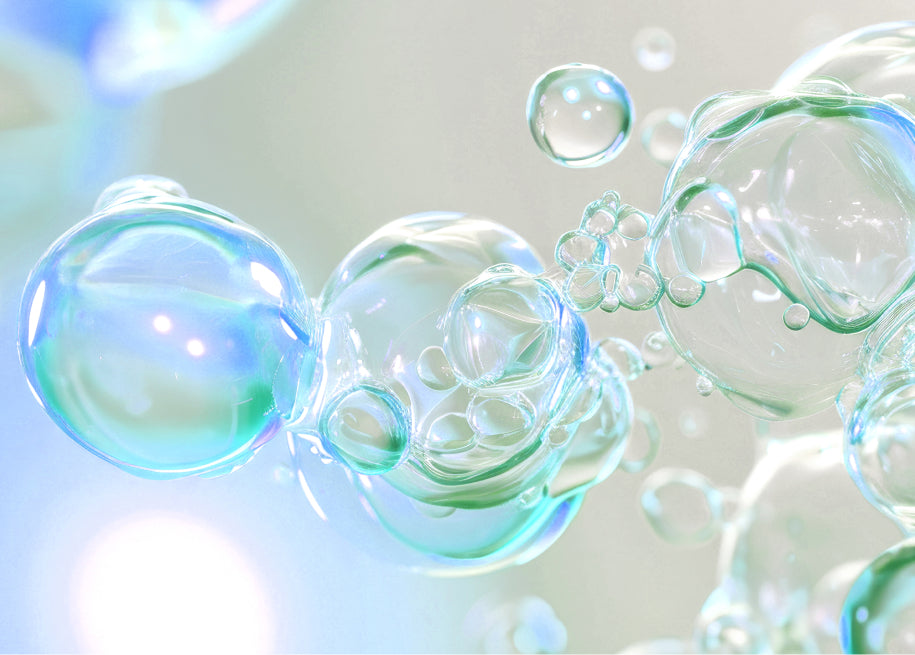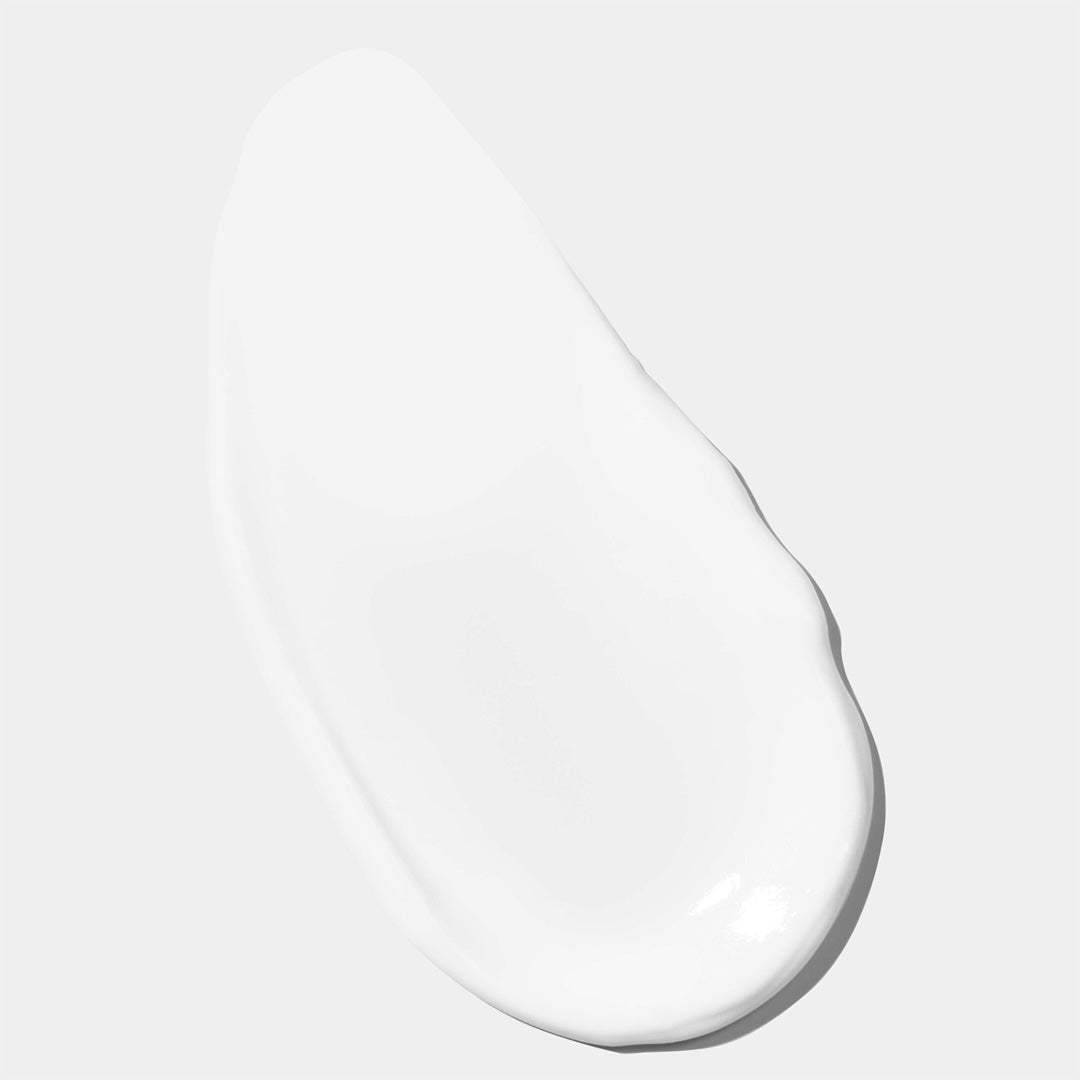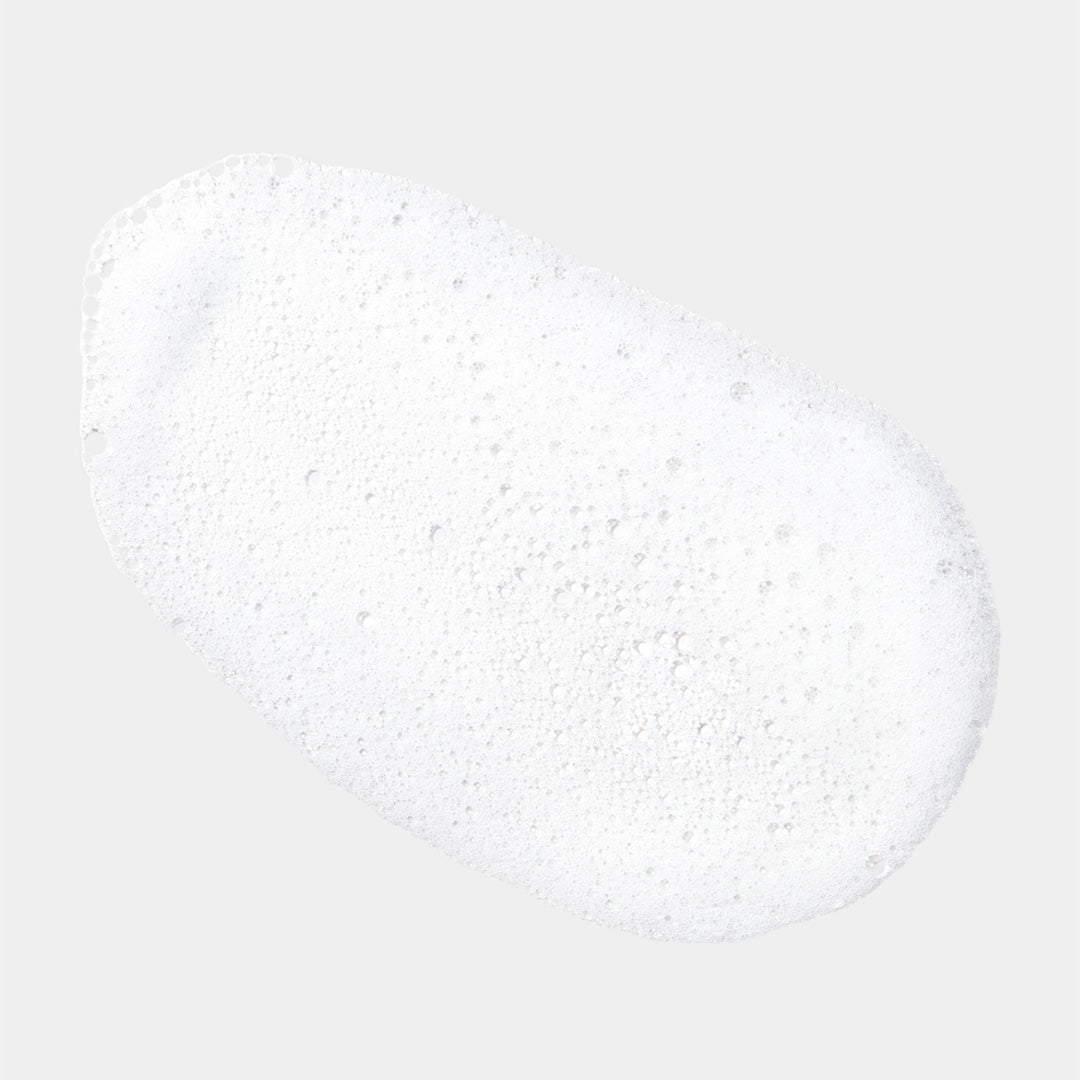It’s estimated that acne affects up to 50 million Americans every year, and as one of the most common skin conditions, many people are looking for ways to manage it. Thankfully, there are several things you can do to target acne prone skin when it comes to your skincare routine.
Whether you’re looking for a short-term solution for the odd breakout or you’re keen to implement something long-term to prevent further breakouts, we’ve got you covered.
What is acne?
In its simplest form, acne is a common skin condition that occurs when our oil glands become clogged with excess sebum. When this happens, pimples, spots, and cysts can form on the skin. Our skin has millions of tiny sebaceous glands connected to hair follicles all over the body. These glands are responsible for producing an oil called sebum which protects the skin.
There are many reasons why our oil glands can become blocked. For instance, acne is typically associated with teenagers who also experience a surge in hormones. These hormones can cause our sebaceous glands to go into overdrive, producing excess oil that can become blocked by dead skin cells, leading to clogged pores and acne.
Types of acne
While acne is a ‘catch-all’ term for the spots that appear on the skin, there are several different types of acne.
- Whiteheads - This type of acne manifests itself as small flesh-colored or white-colored bumps on the skin. They are usually caused by excess oil and dead skin cells clogging the opening of the pores.
- Blackheads - Similar to whiteheads, blackheads are caused in the same way but when the material clogging the pore pushes through and is exposed to the air, it reacts with oxygen and turns black.
- Pimples - These are what one might be familiar with when they first think about acne, they’re the classic red spots that appear when bacteria gets trapped inside the pore with the oil and dead skin. In this case, the area can become inflamed which causes the red, angry look we all know.
- Cystic acne - This type of acne feels like hard and painful bumps and is often compared to the feeling of marbles trapped under the skin. Cystic acne appears when the oil, dead skin cells, and bacteria penetrate deeper into the skin.
What causes acne?
Acne can be caused by a number of different factors, but the main four causes are inflammation, clogged hair follicles, bacteria, and excess sebum. However, these main causes can also be worsened by environmental or lifestyle factors.
Some of the factors that can influence acne that you can control include stress, high humidity levels, diet, and medication. Those that are not always controllable include hormonal changes, skin type, and genetics. The best way to determine what is causing your acne breakouts is to speak to a dermatologist. They can also help you to establish an acne skincare routine that targets your specific needs.
Why do you need an acne-specific skin care routine?
If you’re someone who struggles with acne breakouts regularly, it’s important to remember that acne is a common skin condition and affects more people than you might think. But while this might provide some relief, it’s likely you’ll still want to do something about it. To really target your acne head-on, your routine must be acne-specific.
An acne-specific skincare routine can help to ensure your skin is calm while reducing pimples and preventing new acne spots from developing. Whether you’re going all-out with several products that target acne or you’re keeping it simple with one or two products, improving your skincare routine and ensuring it’s targeted can deliver other skin benefits too.
However, it’s important not to go overboard and buy every product that targets acne. Using too many acne treatments can increase the likelihood of irritation
Skin care routine for acne prone skin
A good skincare routine for acne prone skin is comprehensive and includes gentle but effective formulas designed to target acne and the factors that cause it. However, it’s important not to go overboard and buy every product that targets acne. Using too many acne treatments can increase the likelihood of irritation, so it’s best to start slowly and build upon your routine as your skin becomes more accustomed to the products.
Here are some skincare routines that can help you manage and prevent acne effectively.

Morning skin care routine
To get your day off to a good start, nourishing your skin and preparing it for whatever it might come into contact with is essential. It can also ensure you’re making the most of your acne treatments to achieve the best results.
Gently cleanse
Morning cleansing is an important step in every skincare routine, but it’s essential that you keep things gentle when targeting acne. Although it’s tempting to scrub your face in an effort to remove your acne, this can make things worse. Harsh cleansers or exfoliants can further aggravate the skin, causing acne to become inflamed or even infected in some cases. To help combat acne, you should cleanse your face gently, using your fingertips or a soft washcloth.
When it comes to choosing a cleanser, there are a couple of options. For mild acne, an over-the-counter (OTC) acne treatment wash can be a good option. Look for one with salicylic acid or benzoyl peroxide as these ingredients provide an antimicrobial action that helps to unclog pores.
Our Gluconic Acid :: Coconut PPL Complex cleanser is an ideal solution for blemish or acne-prone skin. With a gentle foam consistency and PHA formulation including gluconic acid, this cleanser cleanses the skin while killing acne-causing bacteria to reveal a much softer, clearer complexion. The gluconic acid also helps to shed dead skin cells which can ensure the products following in your skincare routine are more easily absorbed.
This calming antimicrobial formula targets dull skin, clogged pores, and uneven tone — gently shedding cells while strongly stimulating barrier repair to leave skin soft and purified.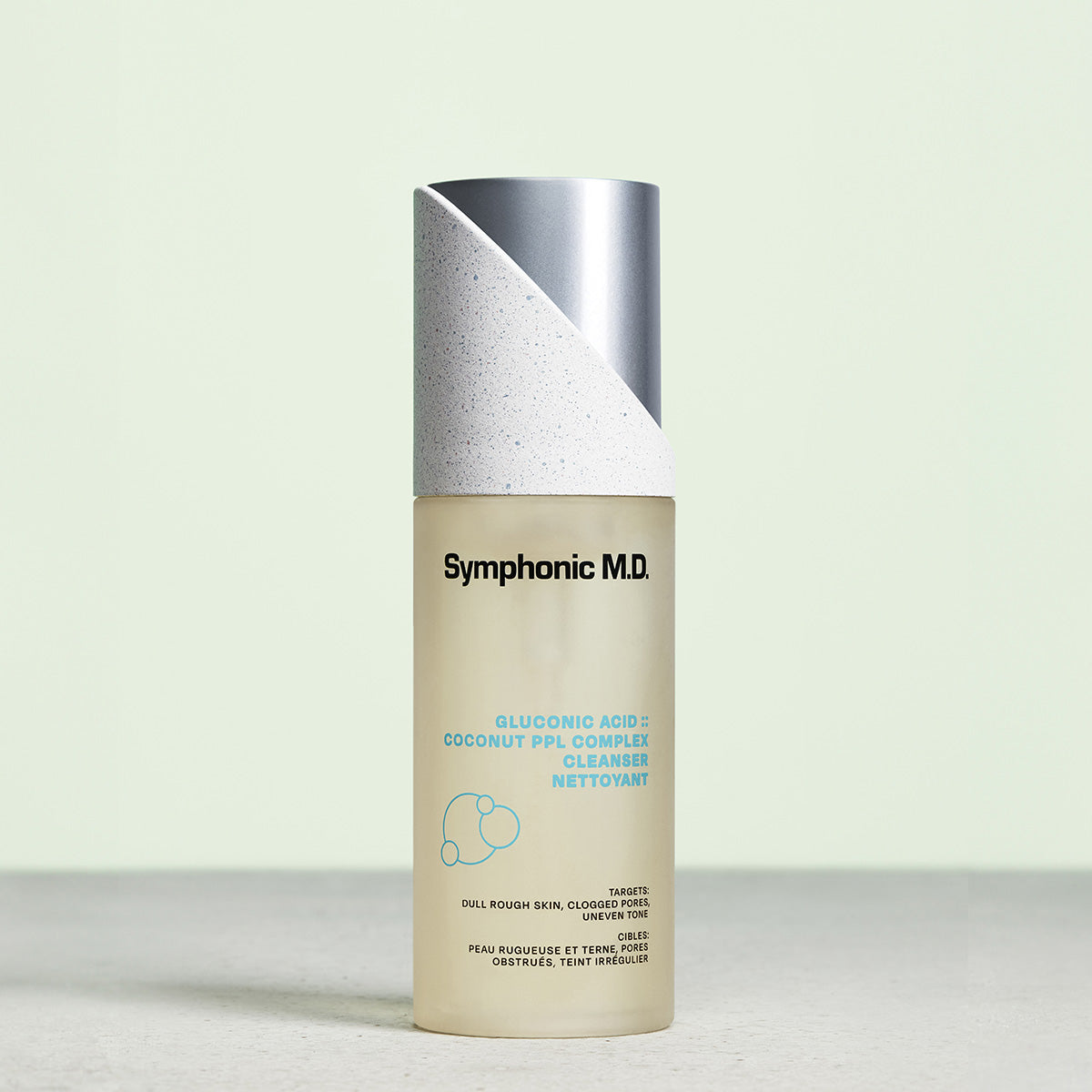
Gluconic Acid :: Coconut PPL Complex
For those with more severe acne who might already be using prescription acne medications, you’ll need a much gentler, non-medicated cleanser instead. This ensures your products are working with one another and not against each other.
Tone (optional)
Toning the skin is optional and using a toner will depend on your skin type. This additional step is useful for oily skin types as toners work to remove extra oil from the skin and rebalance the skin’s pH level, which is usually slightly acidic. Toners, also known as astringents, can also hydrate the skin and help to fend off blackheads or other blemishes.
When looking for the right toner, alcohol-free products work best as they won’t dry out the skin or further irritate your acne symptoms. This is particularly important if you’re already using drying acne treatments or have severe or inflamed acne. Alcohol-based toners can sting open pimples or pustules which can be uncomfortable and cause more irritation.
If you have dry or sensitive skin, you won’t need to use a toner because you won’t usually have excess oil to remove. If you do use a toner, it’s important to use a gentle, nourishing one to prevent drying out the skin even further.
To apply a toner, you should use a cotton ball and gently smooth the product over the face and neck.
Treat/medicate
This step in your acne skincare routine will likely look different from a friend who is also treating their acne since everyone’s skin is unique and will respond differently to acne treatments. Using your treatment or medication in the morning is a great time to get ahead with your skincare routine, protecting your skin for the day and ensuring your products have time to get to work.
Depending on the severity of your acne and where you’re at in your treatment plan, you might be using spot treatments, acne-targeting serums, or even topical prescription medications. Whichever products you’re using, it’s important to follow the manufacturer’s guidance on the packaging or the instructions given to you by a dermatologist or healthcare provider.
Moisturize
As acne typically occurs in oily skin, although it can develop on dry skin too, you might think that moisturizing already oily skin would be counterintuitive. However, moisturizing is a crucial step in your skincare routine. Many acne treatments and medications can be drying to the skin, so ensuring you have a layer of moisturizer over the top can help ensure your skin stays soothed and nourished. If your acne is severe or you have very oily skin, look for products specifically for your skin type to make sure your acne isn’t aggravated further by additional oils.
Struggling with acne and worried moisturizer might aggravate it? Uncover the truth about moisturizers and acne in our detailed guide Does Moisturizer Cause Acne.
Apply sun protection
The last step in your morning skincare routine is to apply sun protection. There are several reasons for this but the main reason is that everyone, regardless of their skin condition, should be using SPF to protect the skin from sun damage - even on cloudy days!
When treating acne specifically, you might find that acne treatments and medications can make your skin more susceptible to sun damage, so you definitely don’t want to miss this critical step. Be sure to look for products formulated for the face rather than full-body treatments as they will usually be lighter and therefore less likely to enhance oil production in the skin.
Evening skin care routine
Maintaining your skincare routine in the evening is just as important as it is in the morning. Some would argue it’s even more important as you’ll have a day’s worth of pollutants and dirt to wash off before you climb into bed. Here are our tips for a successful acne-specific evening routine.
Cleanse
Cleansing your skin in the evening is slightly different from the morning as you might have makeup to wash off too. Washing your face before bed not only removes your makeup but also gets rid of the oil produced during the day. In addition, it’ll remove dirt and other impurities you might have been exposed to during the day.
Like the morning cleanse, it’s important to be gentle with the skin, using your fingers or a soft cloth and a soothing cleanser. You might also like to cleanse the skin twice if you have had makeup on, as this will ensure everything has been thoroughly removed.
Tone (Optional)
If you’ve already decided to use a toner as part of your morning routine, there’s no harm in using it in the evening too. Just remember, toners are best for oily skin and will not necessarily speed up your acne treatment if you have normal, dry, or sensitive skin.
If you usually have oily skin but it’s drying out due to acne treatments, you could simply skip the toner in the evening but keep applying it in the mornings so your skin has a chance to rejuvenate and moisturize while you sleep.
Medicate
Just as you apply your acne medications or treatments in the morning, you may also do the same in the evening. Some treatments call for twice daily application, in which case you would use the same product in the same way both in the morning and the evening. Other treatment plans could call for different products in the AM and PM.
No matter what treatments or medication you’re using, always remember to apply it as per the instructions on the packaging or those given to you by your dermatologist or healthcare provider.

Apply retinol
If you’re using retinol as part of your acne treatment plan, it’s best to use it as part of your evening skincare routine. Retinol has many benefits for the skin, including unclogging the pores and clearing the skin to reveal a smoother complexion.
If you’ve never used retinol before, it’s important that you start slowly and let your skin build up a tolerance to it. As an active ingredient, it can dry or irritate the skin if you go too hard too quickly with it. You should also start with a lower-strength retinol to begin with and gradually build up the strength as you use it over a longer period.
New to using retinol? Learn everything you need to know about incorporating retinol into your skincare routine in our comprehensive guide: Retinol for Beginners: What is a Good Retinol to Start With?
Moisturize
While we’re sleeping, our skin has the perfect opportunity to regenerate and repair without external influences. Moisturizing the skin in the evening is an important step in your acne-specific skincare routine, especially if you’re using drying acne treatments or medications. When choosing a night-time moisturizer, you should look for acne-specific products or those with thinner consistencies to ensure you’re not clogging the skin any further.
Our Retinol :: Vitamin C Powered by BioA3 moisturizer has been specially formulated for blemish-prone skin, making it a great choice for those with acne. With anti-inflammatory and antioxidant properties, it works to reduce blemishes and kill bacteria, while calming irritation and rehydrating the skin.
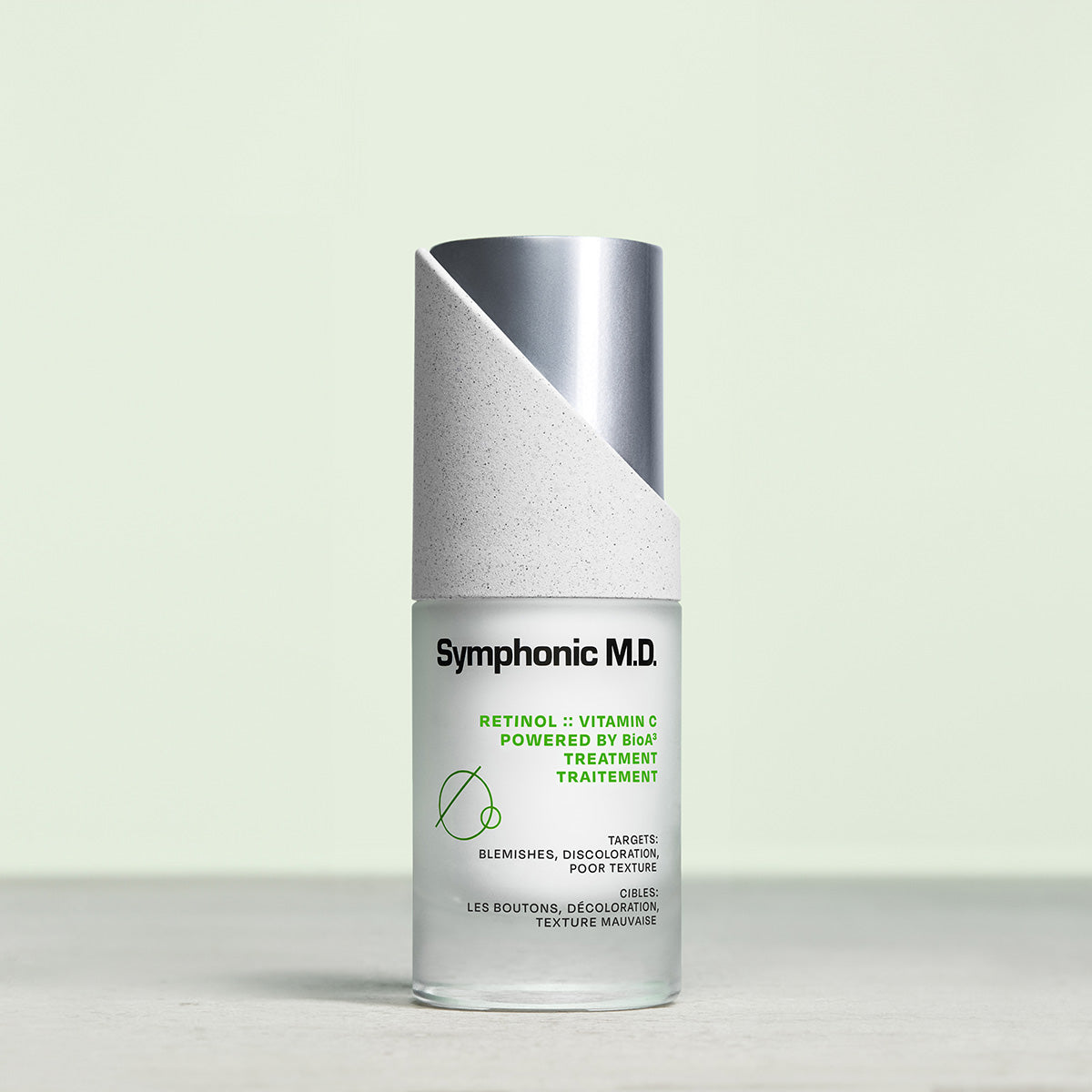
Retinol :: Vitamin C
This anti-inflammatory serum powered by BioA3 targets blemishes, tone, and texture — helping to clear bacteria and smooth skin without clogging pores.
Weekly skin care routine
While maintaining a consistent morning and evening skincare routine will help you get the most from your treatment plan and ensure you’re getting the most from your products, you can also add in some weekly treatments to take it a little further. Some options include:
- Active mask - using an enzyme or exfoliating acid treatment can help to draw out impurities and reduce the appearance of acne. Many also contain ingredients that help to moisturize the skin, giving it an extra boost of nourishment. If excess oil is a particular problem, it’s worth looking for masks with clay or activated charcoal as these can help to draw out that excess.
- Reparative mask - if you’re using drying treatments, a reparative mask is a must. These hydrating face masks with reparative properties can repair and protect your skin barrier, preventing it from drying out further. Look for products with hyaluronic acid, vitamin C, and niacinamide.
- Spot treatment - if you’re battling with occasional acne breakouts or your skin needs some help for an upcoming occasion, it could be worth trying a spot treatment. These are useful for the odd pimple or pustule and can help to remove them quickly. While they work in the short term, they shouldn’t be your main form of treatment.
Best ingredients for an acne prone skin care routine
When you’re building up your ‘acne treatment kit bag’, there are certain ingredients that have been studied and are proven to have a positive impact on acne. Look for products that soothe redness and inflammation, while helping to reduce any post-inflammatory hyperpigmentation that could occur.
Acne can often be sore, so you’ll want to look for products that contain ingredients to help with any soreness. Your acne products should also be lightweight, especially if you’re prone to oily skin. This is because heavy formulas can clog your pores further and increase your chances of another breakout.
While there are several ingredients you should use, there are also some to avoid. For example, exfoliating products are not good for treating acne as they can irritate the skin barrier and make it worse.
Specific acne-fighting ingredients
Some of the most common acne-fighting ingredients found in acne-specific products and treatments include the following:
- Salicylic acid - this ingredient works by penetrating the hair follicles and oil glands to gently exfoliate and dissolve acne-causing blockages such as dead skin cells, oil, and other debris. Salicylic acid also reduces the amount of oil being produced, reducing the chance of new acne blockages occurring or getting worse.
- Benzoyl peroxide - this chemical compound acts as an antiseptic, reducing the number of germs and bacteria on the skin. It provides a broad antimicrobial action and can also help to shed dead skin cells, resulting in a clearer complexion.
- Sulfur - used in many acne treatments, sulfur can help to dry out the skin and absorb excess sebum that could be contributing to breakouts. By drying out the surface of the skin, it also dries out dead skin cells which unclog the pores. Sulfur has a mild inhibitory action on bacteria too, alongside modest anti-inflammatory benefits.
- Retinol - we’ve already mentioned retinol as a step in your skincare routine but retinol is also a key ingredient in fighting acne. It works in a couple of ways. First, it reduces sebum production to prevent clogged pores, and therefore acne breakouts. Secondly, it gently exfoliates the skin to remove dirt and dead skin cells.
- Azelaic acid - to treat acne, this ingredient penetrates the skin and breaks up acne-causing blockages. It also works to kill the bacteria that infect pores and decreases the production of keratin, which can lead to the development of acne.
While there are several ingredients you should use, there are also some to avoid. For example, exfoliating products are not good for treating acne as they can irritate the skin barrier and make it worse.
When should you add prescription medication to an acne skin care routine?
For severe acne, it might be possible to completely skip over-the-counter treatments as they can be limited in their ability. Prescription treatments and medications contain higher strengths of active ingredients and can often treat acne much quicker. Likewise, if you’ve tried treating your acne for a long period with no improvement, it could be time to move to a prescription treatment.
There are many different options available when it comes to prescription medication and treatments. Your dermatologist or healthcare practitioner will be able to discuss the best course of treatment for your needs, skin type, and acne severity. They might target inflammation, hormones, or bacteria as part of their plan, after discussing your skincare goals with you.
In most cases, acne cream will be prescribed as a first option. If this doesn’t improve your acne breakouts, you might be given oral medication instead.
Oral medication
If you’ve exhausted topical treatments for your acne and you’re not having any luck in stopping your breakouts, oral medication can be an option. Dermatologists have a few options when prescribing oral medication, although the first choices are usually tetracyclines or macrolides which are antibiotics.
Dermatologists will often use oral acne medication to bridge a gap and speed up acne treatment, but as antibiotics, long-term use is not recommended as it can be dangerous. Your healthcare provider will be able to discuss the options with you and determine whether you could be a good candidate for oral medication.
The bottom line
Whether you’re at the beginning of your acne treatment journey or you’ve tried multiple different options so far, maintaining an acne-specific skincare routine is key. With a consistent skin routine that includes the right products for your skin and acne type, as we’ve covered here, you should be well on your way to clear skin in no time.
